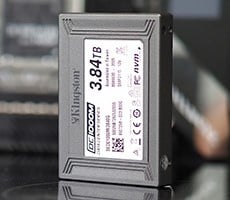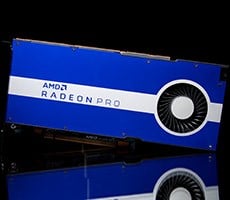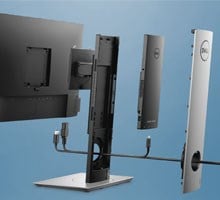Netgear Orbi AC3000 Mesh WiFi System Review
How We Tested and Performance
When we test computer hardware we typically use a blend of "real world" and synthetic tests, but that can be difficult to pull off with something as unpredictable as wireless networking. There aren't any established benchmarks like 3DMark, per say, and it is impossible to remove variables in the testing environment anywhere outside of a dedicated lab, so as always your mileage may vary. Here in the real world where we test, performance varies according to a variety of factors, including where the router is placed, the size and construction of your dwelling, interference from neighbors, and more. However, we've done our best to illustrate both real world and "best case scenarios" with our testing, and for that we relied on the program NetPerf. This tool allows us to setup one PC as a server, and one as a client, and test the connection speed between the two computers.
Finally, we've compared the Orbi router to Netgear's own Nighthawk X8 tri-band AC router, which is stiff competition, offering not only copious levels of channel bandwidth but active, amplified antennas to boot. Though the Nighthawk may theoretically offer higher performance over shorter ranges, Netgear's Orbi mesh router system should offer better performance over the longer distances we've chosen for testing, since that is true target application of a WiFi router mesh network.
5GHz Performance



The file transfer test, over short distance shows the Nighthawk significantly faster than the Orbi, due to its USB 3.0 transfer speeds, versus the Orbi's USB 2.0 port.
2.4GHz Performance



The file transfer test over 2.4GHz was again an easy nod to the USB 3.0 connectivity of the Netgear Nighthawk X8, though the race was a bit tighter. If you like to hang bulk storage off your routers, this is the one of the shortcomings of the Orbi in its current version.
We should note, in all of the above tests, that we forced the Orbi's SSID for just 5GHz or 2.4GHz, but not both at the same time over a single SSID, which is the Orbi's stock configuration. This was just for testing purposes but optimally you would want the system to auto-negotiate which frequency and settings to use, depending on your client location. Regardless, no matter how you slice it, a Netgear Orbi two router system performs as advertised and performs very well. A two unit Orbi mesh setup literally blankets your area with WiFi and the system can intelligently adapt to whichever frequency will deliver you the best performance, while providing this over much longer distances than a standard router.







